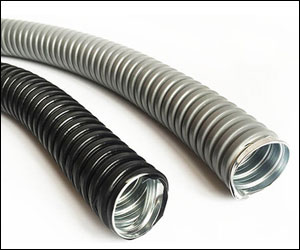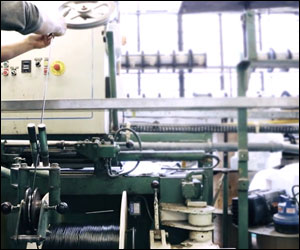PVC & Metal Conduits & Accessories
 One of the most competitive supplier for Cable Management, Conduits & Accessories in the Middle East.
One of the most competitive supplier for Cable Management, Conduits & Accessories in the Middle East.
PVC is a surprisingly useful material, and is used in a wide variety of different manners in a number of diverse industries.
PVC stands for polyvinyl chloride. It is a thermoplastic resin, which means it can be softened by heating, and is produced by a process known as polymerization.
PVC is tough and resistant to abrasion, and also has a decent mechanical strength, especially when looked at in comparison to its relatively low weight. In addition, PVC is very resistant to corrosion, impact, abrasion, weathering, and even chemical rotting. For this reason, it tends to be used for many outdoor products, and products which require a long lifespan.
It is widely known for its use in cable insulation. Manufacturers like SK Wiring acknowledge it as the most commonly used material for their industry, primarily for its ease of use and resistance to fire. It is estimated that it could give an in-service life of up to a hundred years, which means it exceeds the lifespan of most modern buildings.
Popular cable insulation
PVC doesn’t conduct electricity at all. For this reason, it is the perfect material to use in electrical applications such as in the insulation of wires and cables, where it can have a lifespan of around four decades.
PVC_Wiring-web
 A close-up look of the process of implementing PVC jacketing on cables.
A close-up look of the process of implementing PVC jacketing on cables.
In addition, PVC is extremely safe. It has been extensively researched and tested, and fulfils all international health and safety requirements. It is entirely non-toxic, and it has been deemed as having no more effect on the environment than the various alternatives.
Although PVC will burn when exposed to fire, it is self-extinguishing – if the source of ignition is taken away, it will not continue burning. Finally, it is tough to ignite and produces little heat, and it also tends to char rather than produce burning drops, meaning the danger of the fire spreading is significantly reduced.
PVC is easy to strip and easy to handle, and most modern PVC compounds now offer good fire resistance as well, although if used in high risk areas it is still best to specify a low-smoke, low-halogen grade. The normal or standard grade of PVC—the type commonly used in electrical household wiring—has a maximum operating temperature of 85°C, although some heat-resistant compounds can remain operational at temperatures up to 105°C.
Additional benefits
PVC does not cost a great deal to make, and it is in much greater supply than other natural resources, which makes it rather a great deal cheaper to purchase. The fact that it has such a long lifespan only makes it more cost-effective – it doesn’t have to be replaced or repaired for a relatively long time, making it a wise investment for comparatively little money.
Because it is both lightweight and easy to shape, it can be used in a wide variety of manners and styles. It can be cut, reshaped, joined and welded with great ease, and it is easy to handle because it’s not heavy.



